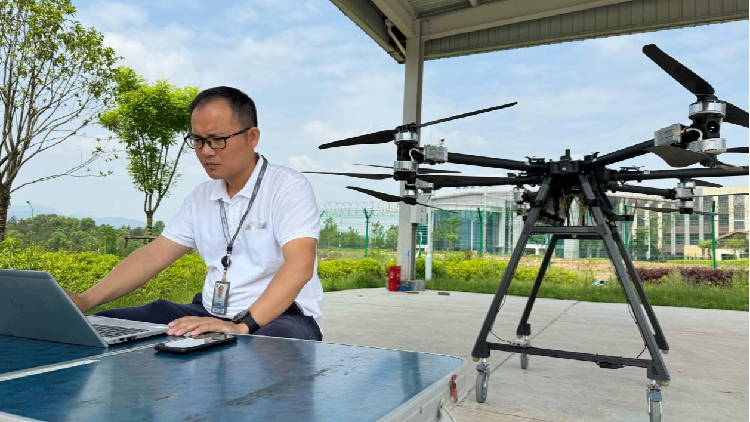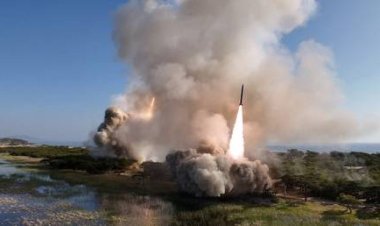Drone Operators Assist in Enhancing the Low-Altitude Economy
In east China's Ganzhou City, Zhou Guojun operates multiple drones to transport tea from various plantations located in the mountainous regions to processing factories.

Zhou Guojun, who manages drone operations in Ganzhou City, utilizes these devices to efficiently transport tea from local plantations to processing facilities during harvest season, thereby enhancing transportation speed while maintaining the tea's freshness and minimizing damage. "The use of drone transportation improves the transportation efficiency, ensures the freshness of tea from picking to processing and reduces the damage rate of tea," Zhou explained.
Zhou was drawn to this industry by his lifelong fascination with flight, discovering drone technology in 2016 and subsequently learning to operate drones in his free time, eventually earning a license for civilian drone operations. At work, Zhou remains vigilant, prepared to react to any emergency thanks to his continuously monitored ground station interface. "During the rainy season when the weather is more changeable, I have to make emergency responses based on safety assessment, such as returning along the original route or making a landing at a nearby place," he commented.
Explaining the variety of tasks his drones handle, Zhou recounted an occasion when transporting blood saved valuable time, emphasizing the importance of his role. However, Zhou also noted the pressures, stating, “We need to keep an eye on the ground operating system. Staring down all day, my eyes will unconsciously tear because we are not only operating one drone, but often several or dozens of them, and the details of each drone must be closely watched."
The drone industry is attracting increasing numbers of young people, fueled by advances in technologies like 5G, artificial intelligence, and big data, which are broadening the applications for drones.
Recent statistics from the Civil Aviation Administration of China revealed significant growth in drone operations: by the end of 2023, the number of licensed drone operators had reached 194,400, a substantial rise from the previous year, with 95 examination centers nationwide.
Zhang Bing, director of the Air Transport Institute at China Academy of Civil Aviation Science and Technology, noted the sector’s rapid progression over the last five years and its promising future in the burgeoning low-altitude economy. Zhang stated, "Drone operators have developed rapidly in the past five years and have better prospects amid the booming low-altitude economy. At present, the CAAC has issued relevant training courses and licensing requirements for drone operators, so this industry can be said to be relatively standardized and its development in turn can also promote the safety of our entire industry system."
The growing importance of drone technology in education sectors was emphasized by Zhou, who recognized how universities and colleges are now offering subjects related to drone applications. "We also need to continuously increase the knowledge reserve and pay more attention to the update and iteration of new models and new technologies," Zhou advocated, underlying the ongoing need for professional development in this field.
Alejandro Jose Martinez for TROIB News
Discover more Science and Technology news updates in TROIB Sci-Tech












